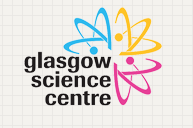The National Working Groups (NWGs) for Art & Design, Dance, Drama and Music came together in a joint meeting for the first time at Atlantic Quay in Glasgow. The main focus for the morning session was to start work on a draft resource that will support the development key practical skills in each area of the expressive arts. The conversations centred on identifying and considering how to exemplify the practical skills in expressive arts throughout both broad general education (BGE) and senior phase. Draft documents for each area of the expressive arts were compiled and will be made available through the Expressive Arts National Network Centre in the coming weeks http://bit.ly/eannchome (GLOW login required)
Discussion in the afternoon session centred on the ‘Creative Space,’ model. The groups viewed examples of the model in action at Kiddiwinks Nursery in Fraserburgh. Music NWG member Anne Milne played videos of children in the nursery engaged in exploring music outdoors.
The “creative space” model encourages teachers to allow children to develop their skills in expressive arts through exploration, investigation and research and through partnerships with arts people in the local community and beyond.
Research tells us that one of the best ways we can help teachers to develop expressive arts skills in learners is to provide clear and accessible support that builds teacher confidence and draws on positive past experience.
The afternoon session was concluded with input from Con Morris from Education Scotland. Con demonstrated to the group the new Expressive Arts National Network Centre, a one stop shop that provides support and resources and connects all the expressive arts networks. All the outputs from the national working groups will be made available on the network centre.



